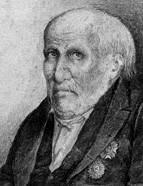

Lisboa would expand on this theme in his most important historiographical work, História dos Principais Sucessos Políticos do Império do Brasil , commissioned by Dom Pedro I in 1825 to narrate the immediate events leading to Brazilian independence. In this ambitious project, explicitly inspired by Robert Southey’s History of Brazil but deviating from Pedro I’s expectations, Lisboa sought to write a General History of Brazil divided into ten parts: Discovery, Division, Conquest, Restoration, Invasions, Mines, Viceroyalty, the Court, the States of Brazil, and finally, the Constitution (Diniz, 2009, p. 263). As the structure suggests, Lisboa intended to meet the monarch’s objective of clarifying Brazilian and European public opinion regarding the closure of the Constituent Assembly in 1824 and the promulgation of the Constitution in 1825. However, he sought to achieve this through an extensive, illustrated narrative demonstrating that independence was the natural development of Brazil’s history—an heir to the same Portuguese spirit that drove the Great Discoveries and the opening of universal trade among nations.
The first chapter of the work is dedicated to the geographical contours of Brazil, immediately raising one of its many “wonders”: the fact that such a vast territory remained united throughout a turbulent history, the most recent upheaval being the Revolution of 1820 in Portugal. The geographical description serves to highlight the supposedly grand destiny of the new empire and the providential action that preserved its integrity. Subtly, Lisboa begins to separate Portugal’s history from Brazil’s providential destiny. The chapter concludes in an untimely but deliberate manner with the transcription of the treaty recognising Brazil's independence, which Lisboa elevates to the status of a master key to its history.
Chapters II through VII address Iberian maritime expansion, recounting key events from Portugal’s early efforts and navigation along the African coast to Columbus’s discovery of the Americas. In this narrative, Portugal distinguishes itself by “[...] opening the legitimate trade of the world, abolishing, without force or injury [...] the monopoly of Eastern commerce” (Lisboa, 1825, p. 10). Here, the rhetoric of free trade, emerging from the anti-Napoleonic struggle, becomes a tool for reinterpreting Portuguese history. At the same time, maritime expansion is acknowledged to have produced unforeseen negative consequences, such as the global spread of African slavery—an effect Emperor Pedro I sought to reverse through treaties with England (Lisboa, 1825, p. 15).
This work is financed by national funds through FCT - Foundation for Science and Technology, I.P, in the scope of the projects UIDB/04311/2020 and UIDP/04311/2020.
